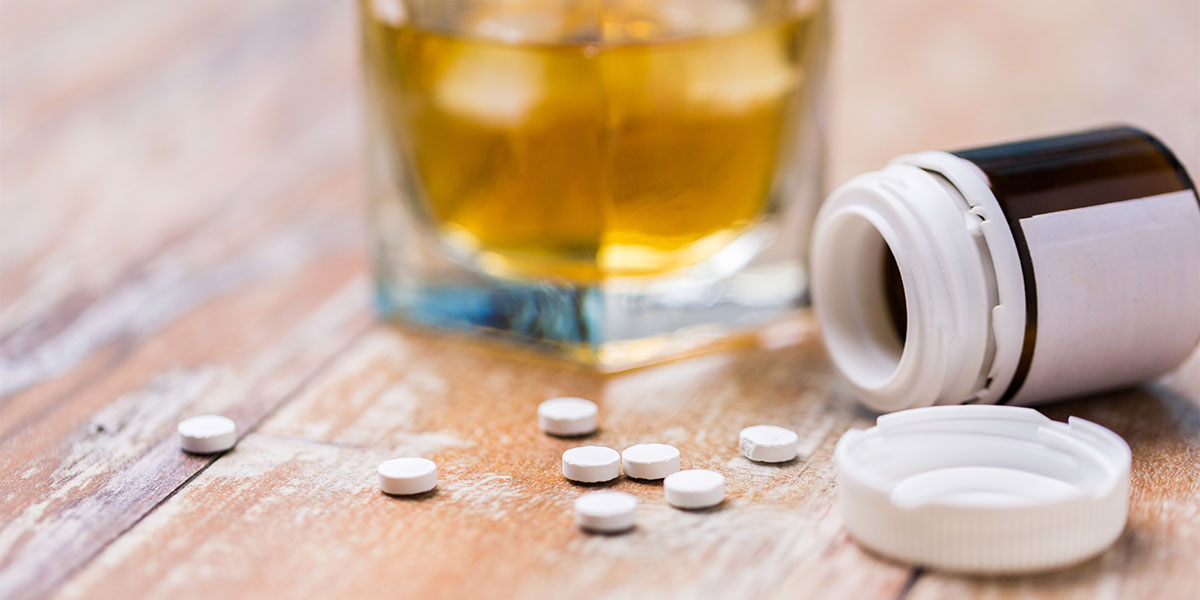Many people wonder how much alcohol you can safely drink while on an antidepressant. According to the National Alliance on Mental Illness (NAMI), mixing alcohol and antidepressants is generally not recommended. Since both can create a sedative effect, these effects increase when combined and can create an unsafe situation and possibly be fatal.
Mixing alcohol and antidepressants can worsen symptoms of depression and/or anxiety. Below, you can learn more about the concern over combining antidepressant medications with alcohol.
Dangers of Mixing Alcohol and Antidepressants
Several studies show a relationship between alcohol use disorders and depression. And, their association can make the cycle of addiction and depression worsen. There are many reasons medical providers discourage drinking alcohol while taking antidepressants. The AFMC reports, at minimum, 30 to 50 percent of those who drink are depressed and alcohol can decrease the effectiveness of antidepressant medications. The following lists other complications and risks associated with alcohol use and medications for depression.
Increased Depression and/or Anxiety
While alcohol may seem to help improve mood and social nervousness in the short-term, it can actually increase the feelings of depression and anxiety in the long run. When combined with anti-depressant medication or used to self-medicate, alcohol strips away the benefits of antidepressants as well as self-care measures for reducing depression and anxiety.
Increased Sedation or Drowsiness
Alcohol is among the sedative-hypnotic classification of drugs. When used “responsibly”, which can be difficult to impossible to measure, or in small amounts, people can feel euphoric, relaxed, and less alert. In excess, people will respond with a slowed reaction time, experience impaired motor coordination, impaired judgement, vomiting, and in high doses, unconsciousness, respiratory depression, and death. When combined with antidepressants, the sedating effects can become much greater.
Worsened Side Effects
Combining alcohol with antidepressants can worsen the medication’s side effects, especially if taking other medications at the same time, such as sleep aids, prescription pain medications, and anti-anxiety medication.
Increased Alcohol Cravings
While we know alcohol can increase depressive symptoms and block the benefits gained from antidepressants, recent studies show SSRI’s such as Prozac (Fluoxetine), Zoloft (Sertraline), and Celexa (Citalopram) may induce cravings for alcohol and, consequently) increase consumption and risk of dependence. Certain genes may have a play as well as other factors. Further research is needed in this area and definitely one to think about when considering mixing alcohol and antidepressants.
Increased Risk of Death
According to the National Institute on Alcohol Abuse and Alcoholism (NIH), other alcohol-medication interactions include changing the speed of how the medication is cleared from the body… either faster or slower, higher blood alcohol concentrations (BACs), and increasing or decreasing the medications effect on the body, such as dizziness or drowsiness, and can lead to accidental overdose. The combination of mixing 2 very potent substances, worsened depression symptoms, and untreated substance misuse disorder can increase the risk of suicide. Certain antidepressant medications pose increased risk of fatality. Monoamine oxidase inhibitors (MAOIs) such as Nardil and Marplan combined with alcohol can cause serious reactions, such as dangerously high blood pressure.
The Association Between Depression and Alcohol Misuse
Like the age old question, “Which came first… the chicken or the egg?”, understanding the association between alcohol use and dependence and depression and evaluating which came first is an obstacle worth exploring. The need for evaluating depression or other co-occurring disorders is crucial to determine the best treatment for the individual’s needs.
Effective Treatment for Addiction and Depression in Santa Rosa, CA
Co-occurring disorders or dual-diagnosis describes treatment aimed at treating mental illness, such as depression, and addiction. Pura Vida Recovery Services offers an affordable, evidence-based dual-diagnosis treatment in Santa Rosa. With our flexible day treatment program, clients can access treatment and still tend to daily commitments, such as work, school, or caring for family.
To learn more about PVRS and how we can help, get in touch and request a confidential assessment. From there, we can create the best treatment plan for your needs.
The connection between alcohol and depression is complex and interesting. With more and more research, we can see how the dance between alcohol and depression can occur and how it can pose greater risk.





